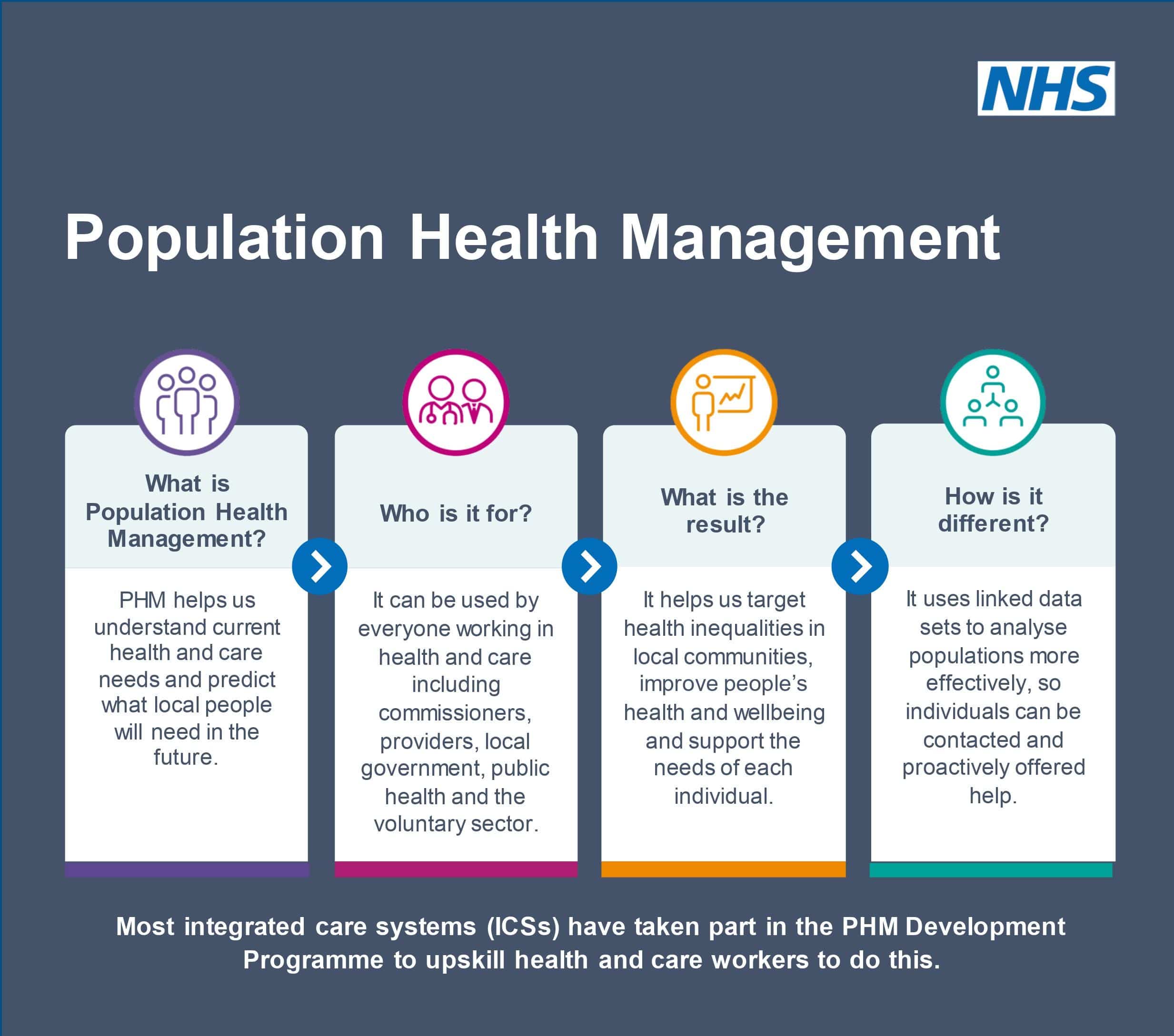
Transforming Healthcare: Optimizing Wellness through Population Health Management
Strategic Approach to Public Health:
Population Health Management (PHM) has emerged as a strategic approach to enhancing the overall health and well-being of communities. This methodology goes beyond individual patient care and focuses on the health outcomes of entire populations. By leveraging data-driven insights and proactive interventions, PHM aims to improve health at both the individual and community levels.
Data Analytics Driving Insights:
Central to Population Health Management is the utilization of data analytics to gather and interpret health information from diverse sources. Electronic health records, socio-economic data, and lifestyle factors are analyzed to identify patterns and trends. These insights empower healthcare providers and policymakers to make informed decisions aimed at preventing diseases, improving health outcomes, and reducing healthcare costs.
Preventive Care and Health Promotion:
A cornerstone of Population Health Management is the emphasis on preventive care and health promotion. By identifying at-risk populations and implementing targeted interventions, healthcare providers can address health issues before they escalate. This proactive approach not only improves individual health but also contributes to the overall well-being of the community, leading to a reduction in the burden of preventable diseases.
Coordination Across the Continuum of Care:
Effective Population Health Management requires seamless coordination across the continuum of care. This involves collaboration among healthcare providers, community organizations, public health agencies, and other stakeholders. Through integrated care models, information sharing, and a focus on care transitions, PHM ensures that individuals receive comprehensive and coordinated healthcare services.
Technology as an Enabler:
In the digital age, technology plays a pivotal role in enabling Population Health Management initiatives. Electronic health records, telehealth solutions, and health information exchange platforms facilitate the seamless flow of information, supporting real-time decision-making and improving communication among healthcare providers. This integration enhances the efficiency and effectiveness of PHM strategies.
Addressing Social Determinants of Health:
An integral aspect of Population Health Management is addressing social determinants of health. These factors, including economic stability, education, and access to healthcare, significantly impact health outcomes. PHM initiatives incorporate strategies to mitigate these social determinants, aiming to create a more equitable and healthier society.
Engaging Communities for Better Outcomes:
Community engagement is a key driver of successful Population Health Management. By involving community members in health promotion initiatives, education programs, and decision-making processes, healthcare providers can foster a sense of ownership and empowerment. This engagement leads to increased adherence to preventive measures and healthier lifestyle choices.
Measuring and Improving Outcomes:
Population Health Management relies on continuous measurement and evaluation of health outcomes. Metrics such as morbidity rates, hospital readmission rates, and preventive screening rates are monitored to assess the effectiveness of interventions. This data-driven approach enables healthcare organizations to refine their strategies, ensuring ongoing improvements in population health.
Challenges and Opportunities:
While Population Health Management holds great promise, it is not without challenges. Data privacy concerns, the need for standardized interoperability, and financial constraints pose obstacles. However, the evolving landscape presents opportunities for innovation, collaboration, and the development of sustainable models that prioritize long-term health.
Building a Healthier Future:
In conclusion, Population Health Management represents a paradigm shift in healthcare, emphasizing proactive, data-driven, and community-centered approaches. To stay informed about the latest advancements and strategies in Population Health Management, visit Population Health Management. This dedicated resource offers insights into the evolving field, fostering a collective commitment to building a healthier future for communities worldwide.
